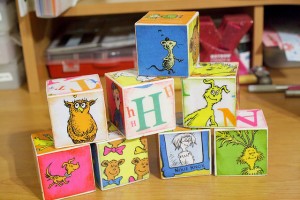The Editing Cycle #7 – Writing with Dr Seuss and Neil Gaiman
That feeling you get
when you’re reading a book
which someone else writ
and you think what it took.
As some of you may know, it’s currently National Poetry Writing Month and we’re a third of the month through so personally I’m struggling! It has, however, given me an idea for today’s article, so while I avoid writing poetry, why don’t you make yourself comfortable and find out why reading is the right way to go about writing.
Read Your Influences
Editing a novel can’t be done in a day or a week and most writers like to read, but some worry that if they read while editing, they will struggle to maintain a focus on their own narrative voice. In some part, this is true. If you’re trying to write a first person horror and you’re reading a chick flick written in third person, you may find your writing style begins to slip and your characters suddenly and inexplicably want to put their chainsaws away and run hand in hand into the sunset.
The trick to making the books work for you is to read your influences, but not just any of them. If you’re writing a novel in third person, read a novel written in third person. If you’re writing a fantasy, read a fantasy. You need to avoid reading anything too different to your current project, but you also need to avoid reading anything too similar. If you’re writing a book about vampires, it might be overkill to read Anne Rice.
The benefit of reading a book which shares some mechanics with your own is that whenever you are reading, you are, consciously or subconsciously, evaluating the piece of writing and what steps the author has gone through to create it. Absorbing these pieces of knowledge will allow you to recognise or utilise them in your own creation.
Pen and Paper
There are two choices for this week’s exercise, we’ll begin with the easy one and then move on to something a little bit harder. The aim is to get you thinking about the mechanics of writing and how we can allow another author to influence us.
In a moment, I’m going to hand you over to Dr Seuss and the challenge is to see what you can pick up from even a short passage of his poetry. Dr Seuss has a very easy going style with a lot of rhythm and a lot of flexibility which makes him an obvious choice for this game. If you look up at the top of this article, you’ll see my own Seussism and yours needn’t be any longer than that.
Remember though, the idea is to let the rhythms influence you, but don’t copy the words or themes. Anyone can count syllables and change a few synonyms around, but the only way you’ll get any value out of this is from playing by the rules.
Congratulations!
Today is your day.
You’re off to Great Places!
You’re off and away!
You have brains in your head.
You have feet in your shoes
You can steer yourself
any direction you choose.
You’re on your own. And you know what you know.
And YOU are the guy who’ll decide where to go.
Dr Seuss
Writing with Neil Gaiman
If you’ve done that one and you’re looking for a harder challenge, then why not try Neil Gaiman? Here’s a double dactyl from his novel Stardust:
Hankety pankety
Boy in a blanket, he’s
Off on a goose-chase to
Look for a starIncontrovertibly
Journeys through Faerie
Strip off the blanket to
See who you are.
girl with a ticket, she’s
off to the theme-park to
leap on a ride.
invisibility
wished for by people still
held up in line.












I usually just lose interest in reading when I’m writing properly for an extended period of time. I get worried I’ll be too influenced or too distracted to write. Sometimes it’s just a case of either or. So the time I put aside for writing would be taken up by reading.
I’ve been reading this trilogy lately though that I’ve really gotten into and I’ve been writing at the same time and the first thing I start to notice is that some of the phrases the author commonly uses start to creep into my writing. Sometimes this is good because you’re kind of extending your range of phrases. Sort of like reading to widen your vocabulary but then you need to be aware you are doing it and kind of keep yourself in check.
But I definitely think it’s worthwhile reading and generally absorbing stories and seeing how those stories are executed.
I agree with the need to be careful and aware of how much you are being influenced by what you read, but I definitely feel having a book on the go keeps me in a creative frame of mind.